“Sipping meat,” the semi-secret Osaka food that sounds like a joke, is seriously tasty

Leave it to Osaka to turn a comedian’s hungover quirkiness into a delicious meal.
The two things Osaka is most famous for are food and comedy, so it makes a certain kind of sense that one of its unique local dishes is something that sounds like a joke and was created thanks to an entertainer.
Nikusui is a combination of niku, meaning “meat,” and sui, “sip” or “slurp.” So what is it? It’s udon noodle soup with beef, but without the udon noodles.
That unusual order is what popular comedian Kyo Hanaki asked for one day back in the 1980s when he walked into an Osaka noodle joint while nursing a hangover, and his order of “Niku udon, hold the udon” eventually came to be known as nikusui. The strips of beef are still served in a bowl of udon broth, with a pinch of sliced negi (green onions) across the top, but you won’t find a single noodle mixed in with them.
When you ask most people what Osaka’s representative foods are, they’ll tell you takoyaki and okonomiyaki. But our Japanese-language reporter Ikuna Kamezawa has heard some show biz celebrities talking about nikusui for years, and when it just so happened that she found herself in Osaka the other day, she knew it was time to try it for herself. If she was going to eat local food, she figured she should have a local pick the restaurant, and in a happy coincidence at the same time that Ikuna was in Osaka, so too was fellow reporter and Osaka native Seiji Nakazawa, who was back home visiting his family during the summer vacation period.

Seiji agreed to meet up with Ikuna in downtown Osaka’s Namba neighborhood. In Ikuna’s eyes, nice guy he may be, Seiji often seems shy and awkward when they’re at SoraNews24 headquarters in Tokyo. So she was surprised to see that when he showed up at their meeting place, he was radiating an aura of dependable confidence.
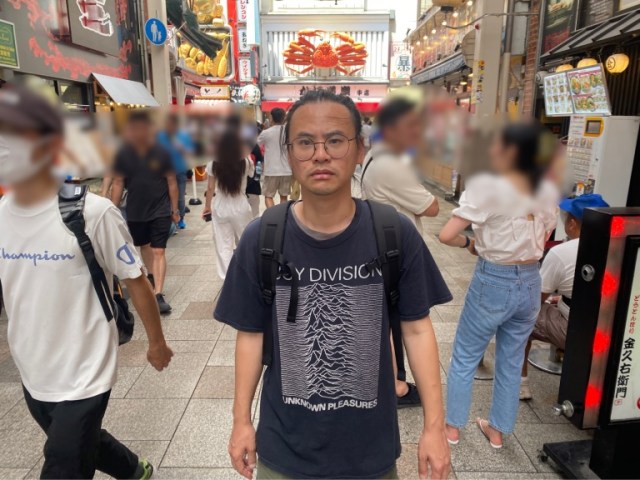
Takoyaki and okonomiyaki joints are easy to find in Osaka. You can’t go much more than a block in Namba without running into at least one of each. Nikusui is, by comparison, much more elusive, but Seiji knew just the place: Chitose, the very Namba udon restaurant where nikusui was first made!
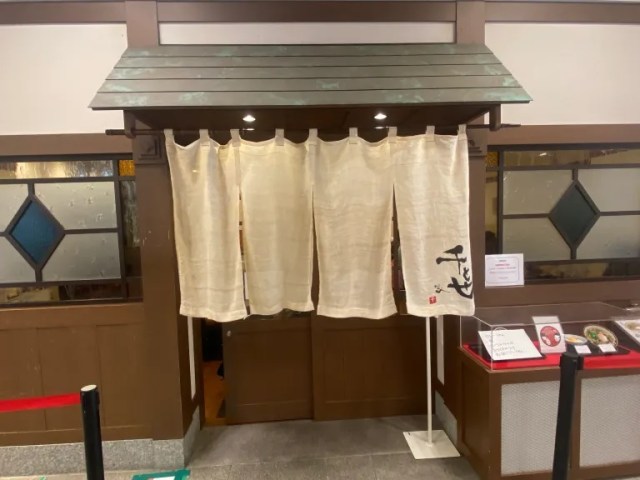
Chitose is just a three-minute walk from Namba Station. However, the convenient location means that the restaurant can also get very crowded, and there was a huge line of people waiting to get in. Once again, though, Seiji showed his Osaka savvy. Just a few blocks up and one street over from Chitose is Chistose Bekkan, or “Chitose Annex,” Chitose’s newer and larger restaurant that’s usually easier to get into.
▼ The walk from Chitose to Chitose Bekkan

Chitose and Chitose Bekkan may be famous among nikusui fans, but that doesn’t mean they’re stuffy or pretentious. You order by buying a meal ticket from a vending machine, and though you can still get udon noodle soups, the first button on the machine is for nikusui.
▼ 肉吸い = nikusui
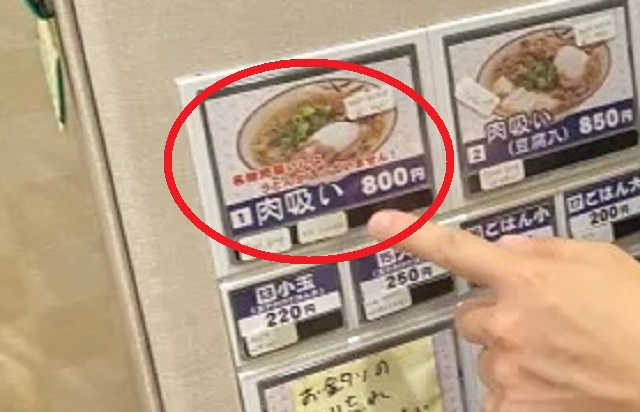
Obviously, the nikusui was what Ikuna ordered. She couldn’t help noticing, though, that the nikusui was the same price as the niku udon, 800 yen (US$5.55), even though the niku udon has all the ingredients the nikusui does plus noodles too.
But the prices made sense once Ikuna had her bowl of nikusui before her, since it has a lot more meat in it than the niku udon does.

It’s rare to have meat like this in Japan without it being served with noodles or over a bowl of rice, so the focus on beef, with no accompanying carbs, made Ikuna’s nikusui feel luxuriously protein-packed. The meat was tender and delicious, and the broth on an exalted plane of culinary excellence. In Osaka and the surrounding Kansai region, udon broth has a lighter flavor and more kombu stock whereas in Tokyo and the eastern Kanto region the broth is darker and made with bonito stock and stronger seasoning. Which is better is really a matter of personal preference, and many people like both, but with Ikuna having become accustomed to the Tokyo style, Chitose’s broth felt both exquisite and novel to her palate.
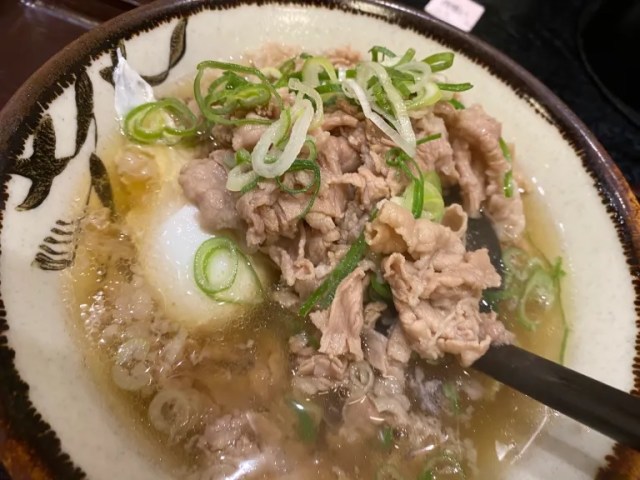
The meat and broth were so captivatingly satisfying that Ikuna didn’t even realize that Chitose’s nikusui comes with a soft-boiled egg. By the time she noticed it, the broth had cooked it into a hard-boiled egg, but that also had given it plenty of time to soak up the broth’s flavor.
Something else Ikuna hadn’t noticed was that in addition to the standard nikusui that she’d ordered, Chitose also offers nikusui with some blocks of tofu as an add-in for 850 yen, and small bowls of tamagakake gohan (raw egg over a bowl of white rice) for 220 yen more.
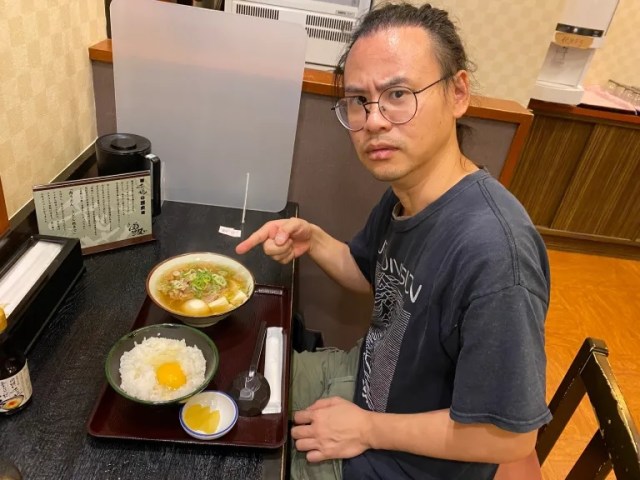
That’s what Seiji ordered, and seeing him dig in with gusto, Ikuna felt that this, too, was a sign of Seiji’s latent confidence and coolness coming out while he was in the familiar surrounding of his own town. Of course the Osaka guy would know the best customizations for an Osaka specialty! “Wow, you really know all about this nikusui stuff, don’t ya, Mr. Osaka?” she said with a smile…only for Seiji to react with a confusedly furrowed brow.
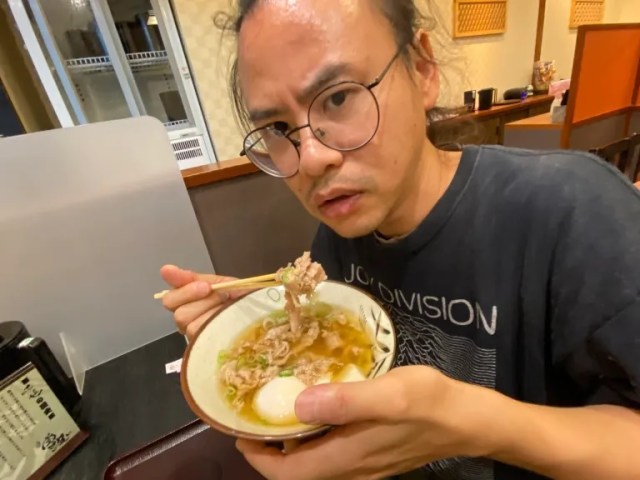
“Huh? This is the first time I’ve ever eaten nikusui either.”
Yep, it turns out that while nikusui is popular among in-the-know foodies and celebs, and despite its affordable price, it’s not something that everyone in Osaka knows about or eats regularly. Before meeting up with Ikuna, Seiji had asked his parents about nikusui, and neither of them had heard of it.
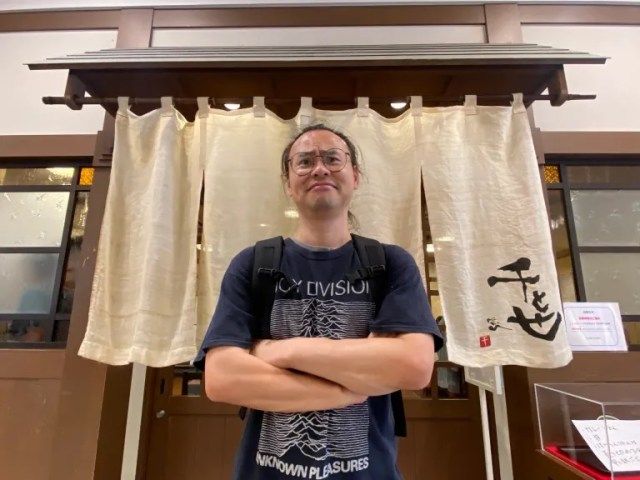
It just goes to show that there’s really no end to the delicious discoveries waiting for you in Japan.
Restaurant information
Chitose Bekkan / 千とせ べっかん
Address: Osaka-fu, Osaka-shi, Chuo-ku, Namba Sennichimae, Namba Grand Kagetsu 1st floor
大阪府大阪市中央区難波千日前11-6 なんばグランド花月 1F
Open 11 a.m.-8 pm.
Website
Photos ©SoraNews24
● Want to hear about SoraNews24’s latest articles as soon as they’re published? Follow us on Facebook and Twitter!
Credit:

0 comments:
Post a Comment